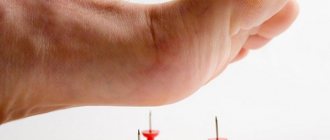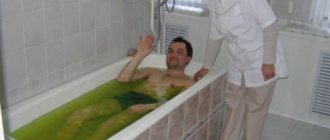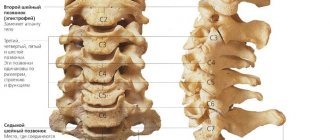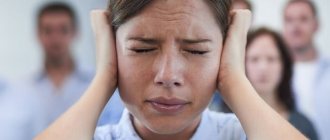Symptoms
The diagnosis of “neurosis,” one might say, is on everyone’s lips, but many probably still don’t fully know what it is – after all, the symptoms of this pathology are often unexpressed, which, by the way, forces the patient to seek help only when serious deterioration occurs.
The main signs of neurosis are almost always the same:
- this feeling of constant fatigue and low emotional background;
- the patient is losing everything; he is haunted by constant melancholy and unaccountable anxiety;
- the person becomes touchy and often cries over the most insignificant reasons.
And the symptoms that the disease has begun to progress are usually:
- developing memory and attention disorders;
- fussiness and uncertainty in one’s actions;
- the patient becomes withdrawn and begins to avoid society;
- irritability and aggressiveness appear in his character.
A characteristic feature is also an obsession with some idea or event, which prevents you from seeing what is happening around you.
Neurosis is a pathological condition characterized by increased fatigue, decreased mood, sleep disturbance, and irritability. Depending on the prevailing symptoms, this condition is divided into three main groups.
- Neurasthenia, or astheno-neurotic syndrome, is characterized by increased irritability, which is replaced by increased fatigue and weakness. As a rule, it is characterized by disruption of the processes of falling asleep and frequent awakenings at night.
- Obsessive-compulsive neurosis. A person may be bothered by intrusive anxious thoughts. Or he commits obsessive actions: sniffles, twitches his shoulder.
- Hysterical neurosis. Characteristic for people prone to creative activity. Women are more often affected.
Common mental manifestations for all three groups are:
- irritability;
- increased anxiety, restlessness;
- fear is unreasonable;
- inability to relax;
- decreased performance;
- absent-mindedness;
- weakness.
As a rule, the patient is more often in a bad mood, he is irritated by almost everything, and he reacts negatively to events that require “leaving his comfort zone.”
Physical manifestations are varied:
- headache;
- dizziness;
- blood pressure changes;
- sleep problems;
- pain throughout the body: in the heart, joints;
- decreased potency and libido.
With hysterical neurosis, the picture may be supplemented by convulsive seizures. In this case, attacks of loss of consciousness will differ from epileptic seizures. As a rule, patients with hysteria fall carefully so as not to hit themselves, twitching differs from those with epilepsy, there is no tongue biting or involuntary urination.
The main thing in the treatment of neurosis is to determine the cause, which can often be associated with childhood, unconscious fears
The main symptom of neurasthenia is severe irritability. This condition progresses, so the patient becomes irritated for any reason. Anything can make you nervous, for example, light, sounds, weather. The outbreak of irritability passes as quickly as it begins. But such attacks are happening more and more often.
The next symptom is sleep problems. A neurasthenic person is not always tormented by insomnia, but there are difficulties falling asleep. And long and prolonged sleep does not guarantee rest. This only provokes new attacks of irritability. In addition, your appetite may decrease. With poor nutrition, the patient’s well-being also worsens.
Another characteristic sign of neurasthenia is excessive emotionality and sudden mood swings. The patient can be in a depressed state, and after 5 minutes he can already laugh and enjoy life. But the positive mood does not last long and is replaced by the next state.
Typically, a person with astheno-neurotic syndrome suffers from a large number of phobias and fears. Treatment of depression gives only a temporary effect, since neurosis must be treated comprehensively.
- Severe headaches (migraines). Many patients note that the sensation is of a compressive nature, as if a hat is one size smaller on the head.
- Tinnitus.
- Increased blood pressure.
- Disorders in the intimate sphere
- Autonomic disorders
- Inflated demands on oneself and the inability to realize them.
Stages of depression
Like any disease, depression has stages of development, lasting from a week to many months.
- Rejecting. Deterioration in well-being and disgusting mood cause shocking behavior and frequent anxiety. Interest in former hobbies disappears. Apathy, drowsiness, loss of strength, loss of appetite intensify and turn into complete alienation.
- Host. A person becomes aware of his condition and illness. After which he refuses to eat, exhaustion begins. Insomnia, lack of adequate thinking and coherent speech, visions appear. Bad thoughts are no longer under control, leading to suicide.
- Corrosive. After external calm, the stage of aggression begins. The patient does not want, and cannot, control his actions. Actions are aimed at harming oneself and others. The person is in an indifferent state. Destruction of the psyche leads to schizophrenia in the absence of the help of a psychiatrist.
Causes
The triggering factors for the development of a neurotic state are:
- nervous and mental overstrain followed by exhaustion;
- lack of proper sleep and rest;
- a change in the usual environment is the cause of childhood obsessive neurosis;
- mental trauma.
Signs of neurosis are similar in men and women. But it is worth noting that physical manifestations of the condition are more typical for men. Women are more likely to have mental complaints.
The disease can be triggered by various factors, ranging from prolonged stress to bad habits. Most often, people with a genetic predisposition are prone to this disease. For example, if there are cases of mental disorders in the family, then neurosis can easily develop in relatives.
The nervous system is greatly affected by a difficult pregnancy and various infectious diseases that the mother suffered while carrying a child. All this can provoke the development of a neurotic disorder. Often it begins to develop against the background of experienced psychological trauma. After a long stay in a state of stress, the nervous system is weakened, so neuroses and phobias begin to form.
Diagnosis of the disease
Getting rid of neurasthenia on your own at home does not always bring positive results. Therefore, when the first symptoms appear, it is better to consult a neurologist. The specialist will conduct an examination to exclude the influence of intoxications, infections or psychosomatic diseases on the body.
Neurosis can be a symptom of serious diseases, such as a brain tumor or neuroinfection. Therefore, the patient must undergo an MRI procedure and rheoencephalography. Only after a thorough examination can you start taking medications.
How to understand that you are depressed
The development of depression is facilitated by severe psychological trauma, death of loved ones, breakup with a loved one, divorce, and the presence of a serious diagnosis. A person changes dramatically, nothing makes him happy anymore. Becomes gray and indifferent.
Depression manifests itself as a concomitant symptom in severe mental illness, alcohol addiction, joint diseases and oncology, and thyroid dysfunction.
The main signs of incipient depression are distracted attention, depressing melancholy, daily fatigue, fluctuations in body weight, negative thoughts about one’s own uselessness and uselessness, apathy, sleep disturbance, lethargy or increased excitability, and migraine. The onset of illness paralyzes activity and disrupts the usual course of life.
Signs of a somatic nature
Somatic signs of neurosis can manifest as pain in different parts of the body - in the abdomen, heart, muscles, joints, head, etc. The patient, as a rule, complains of tremors in the hands, dizziness, increased sweating, appetite disturbances, insomnia at night, which may be accompanied by drowsiness during the day.
It is interesting that with the development of the described pathology, the patient may also experience disturbances in cardiovascular activity. In medicine they are characterized as cardiac neurosis. The patient complains of tachycardia, arrhythmia, bradycardia or extrasystole, but pathological changes in the said organ are not detected.
In medicine, neurosis of other organs, such as the stomach, is also observed. It is provoked by stress and poor nutrition, and it manifests itself in the form of stomach cramps, sweating and irritability.
Folk remedies
Another additional method of treating neurotic conditions is the use of alternative medicine recipes. Treatment of neurosis with safe folk remedies that really help and are proven, gives good results in combination with pills and psychotherapy. We are talking, first of all, about herbal medicine - the use of decoctions and tinctures of medicinal plants.
An infusion from the following collection has a pronounced sedative effect:
- 2 parts each of three-leaf watch and mint, one part each of valerian with hop cones.
- Pour two tablespoons of the crushed mixture into a glass of boiling water and leave for about 20 minutes.
A combination of cumin seeds, valerian rhizomes and chamomile flowers has a similar effect on the nervous system. Raw materials are taken in equal proportions and brewed as the previous collection.
Neurotics with a hysterical type of disorder can take a decoction of Voronets roots to prevent attacks:
- The crushed rhizomes are boiled for about 20 minutes over low heat, then the product is infused until it cools and filtered.
- You should drink it one tablespoon three times a day.
A decoction of heather (50 g per 0.5 liter of water) also helps to get rid of obsessive states and relieve tension. After boiling for 10 minutes, it should be strained and drunk as tea with the addition of honey.
Treatment of neurosis with folk remedies is carried out using herbs, which may have calming or stimulating properties. The first group of drugs is used in the evening, and the second - in the morning. Preparations are prepared based on:
- Motherwort. In order to prepare a folk remedy, it is recommended to use the above-ground part of the plant, which is first crushed and dried. One glass of raw materials should be filled with 0.5 liters of wine, which is preheated. Set the product on low heat and simmer for 30 minutes. After cooling, the medicine must be strained. Treatment of neurosis with a folk remedy is carried out twice a day. A single dose of the medication is 100 milliliters. The drug should be taken in a course lasting 14 days. If there is a need to increase the effectiveness of the medicine, you need to add 50 grams of dried dried fruit to its composition.
- Mint. Treatment of neuroses at home is carried out using mint-based medicines. Take the herb in dried and crushed form in the amount of one tablespoon and pour 200 milliliters of boiling water. After cooling, the medicine is filtered and taken orally before meals once a day. It is recommended to store the product for two days, and after that the decoction is prepared again.
- Collecting herbs. Treatment of neurosis with folk remedies requires the preparation of a medicine based on plants such as snowhead, tartar, and adonis. All plants must first be mixed in equal proportions. 120 grams of the mixture is poured into a thermos and 700 milliliters of boiling water is poured. You need to infuse the drug for a day. After filtering the broth, 40 grams of motherwort tincture and the same amount of honey are added to it. If the neurosis is severe, then the drug is taken 4 times a day, 1 glass. After the patient’s condition improves, the medicine is prepared according to a similar scheme, only without the use of motherwort. The medicine is taken once a day before bedtime, 1 glass. The course of treatment with the drug is at least 2 months.
- Wormwood. If a patient has an anxiety syndrome, it is recommended that he prepare a medicine based on this plant. It must be used in dried form. The grass is pre-chopped. 20 grams of the resulting raw material should be placed in a container. 500 milliliters of boiling water is poured into it. The drug is infused for 60 minutes. The medication should be taken before meals, half a glass.
Treatment of neurosis with folk remedies is not only highly effective, but also safe. Despite this, before using a particular drug, the patient should consult a doctor, which will reduce the risk of unwanted effects.
Neurosis, like all mental illnesses, is a multi-layered complex condition, so treatment of neurosis with folk remedies can be used in this situation as successfully as drug therapy. Most often, motherwort and valerian are used for this; mint is no less effective. Decoctions and infusions of these miraculous herbs perfectly help cope with nervous diseases and insomnia.
Garlic oil is isolated separately. It is purchased in specialized pharmacies, but is not used in its pure form. In order to begin treatment, garlic oil is diluted with vodka or diluted alcohol (1 tablespoon of oil is added to 0.5 liters of vodka). The resulting mixture, if rubbed on the temples and forehead for a headache, can relieve not only from it, but also from any type of nervous disorders.
As you already understand, a treatment capable of defeating neurosis, reviews of which depend on compliance with the doctor’s recommendations, does not necessarily have to be based on taking medications. Home remedies are often used as medications that can significantly alleviate the patient’s condition.
In cases of nervous excitement, sleep disturbances and increased tearfulness, you can use a bath of valerian root. To do this, 60 g of root is boiled for 15 minutes. and leave for another hour, after which it is filtered and poured into the bath. The duration of this procedure is no more than 15 minutes.
By the way, it is recommended that patients with insomnia sleep on a pillow stuffed with wormwood or hop cones. Verbena tincture also helps to improve sleep. To do this, pour a glass of boiling water (1 tsp/1 cup) and leave for an hour. The infusion should be taken in sips throughout the day.
And an open lumbago is perhaps the most popular remedy for diseases of the nervous system: 2 tsp. This herb is poured with boiling water (1 tbsp.) and left for a day. After which you should drink it in small portions throughout the day.
Advice from a psychologist: how to get out of depression
To quickly get rid of a terrible depressive state, you should listen to the recommendations of a psychologist: how to help yourself with depression.
A psychologist or psychotherapist will tell you how to help yourself with depression
- Daily walks in the fresh air. Staying in the fresh air saturates the blood and brain with oxygen and relieves fatigue after a working day. If you don’t have time, then traveling by transport to work and home can be easily replaced by walking.
- Sports activities. Morning warm-up will help improve your mood, relieve lethargy and loss of strength. You need to start at a slow pace for 10 minutes a day. Pilates and yoga would be ideal options.
- Healthy eating. You need to fill your diet with fresh vegetables and fruits, fatty fish. Include chocolate, dried fruits and nuts in the menu.
- Pay attention to your appearance, take care of yourself. One of the signs of depression is indifference to clothes and hairstyle. You need to try to force yourself to observe morning and evening dressing, use makeup and comb your hair. Ask your loved ones to join you for a visit to a cosmetologist and hairdresser.
- Make time for rest. During a depressive period, additional stress and strong emotions can cause complications. It's better to take a vacation and go to a sanatorium.
- Avoid sources of negativity and toxic people. During illness, you should not listen to news with crime chronicles and emergency incidents. Negativity is normally tolerated by a healthy psyche, and not by a sick one. Negative thoughts and unpleasant communication must be avoided. Avoid meeting with people who cause antipathy. Let there be more positive things.
- Spend more time communicating. When you are depressed, you should not be alone. More meetings and pleasant conversations. Being alone brings up unpleasant thoughts that are harmful to mental health.
- Hobbies and creativity. What you love captivates you and negative thoughts recede. You can help yourself with depression by any kind of creativity, for example, such as drawing, embroidery, weaving, modeling. They activate the pleasure point in the brain, which increases the level of positive hormones. The lost taste for life returns.
- Autotraining and meditation. It's time to practice spiritual practices. Relaxing and disconnecting from all thoughts will help you fall asleep and tune in to the positive.
To overcome life's troubles, so that depression does not drag you into a dark corner, it is important not to forget about how to help yourself with depression. Set up positive thinking, stay physically fit, experiment, explore the world, communicate more and travel. And to combat life’s troubles, meditation will help.
Diagnostics
In order to exclude organic pathology and disturbances in the body systems, the doctor will recommend undergoing examinations:
- general blood test;
- biochemical blood test;
- electroencephalography;
- MRI of the brain.
This is the approximate minimum of necessary research. In addition, if there are changes in blood tests, additional detailed examination of the patient is possible. After the neurologist has ruled out organic pathology and organ dysfunction, the patient is referred for a consultation with a psychotherapist.
A few more recipes for treating neurosis
Treatment of neurosis with folk remedies can provide strong support to the body. So, to do this, 0.5 kg of oat grains should be washed and then, pouring a liter of cold water, cook until half cooked. The oats are filtered and the resulting broth is taken a glass a day, adding a little honey to it.
Treatment of neurosis at home also involves the use of sweet clover herb, which perfectly relieves excitability, insomnia and other manifestations of the disease. To do this, brew it with boiling water at the rate of 2 tbsp. l. per glass and leave for about an hour, after which they drink a glass of the resulting infusion throughout the day.
Passionflower (passion flower) also calms the nervous system, as well as tea made from the heads of white-pink clover collected at the beginning of flowering and dried.
Treatment of neurosis at home
It is effective to combat neurotic conditions in the early stages of the development of mental pathology with the help of medicinal herbs, dietary changes, physical and breathing exercises, auto-training, acupuncture and meditation.
Treatment of neurosis using non-drug methods should be accompanied by psychological help.
A person must understand that treating this disease takes a long time, and it is unlikely that it will be possible to overcome it quickly. Even after therapy, relapses are possible, but to avoid them, you need to follow some preventive measures.
Therapy
Neurosis does not allow a person to live normally and enjoy the world around him. The slightest stress for him turns out to be a huge problem, which is very difficult to deal with. The disease also leads to the formation of various phobias.
In this state, norepinephrine and adrenaline actively enter the human body. Because of this, a rapid heartbeat occurs, the glucose level in the blood increases, and blood vessels constrict. This hormone has one credo: run and try to escape.
You need to relax in every possible way. The main thing is to fight such a scourge not with alcohol, etc., but with the help of meditation or playing some kind of sport.
Levy method
This method of getting rid of neurosis was developed by a famous Soviet psychotherapist. His method is that for maximum relaxation you need to tense up a lot. To do this, you can go to the country, visit the gym, dances and other institutions that will allow a person to get very tired.
Force your body to work at full strength. This will allow you to throw out all the negativity that has accumulated over a long time. Many psychotherapists believe this is the best way to treat neurosis at home.
Relaxation
It is very difficult to get out of this state on your own, but it is possible. In most cases, neurosis occurs due to improper sleep patterns. Few people succeed in getting rid of insomnia, since this disease often occurs against a background of constant stress. Treatment should begin with a remedy that will help you relax.
To carry out a soothing procedure at home, you need to get rid of tight clothes, take a comfortable position and gradually relax all your muscles. Treatment begins with calming the muscles of the face, breathing and neck. Gradually, breathing will become calm and sound sleep will occur.
Changes
Some people experience neurosis due to the daily routine. There are no developments, unusual adventures or new acquaintances. In this case, the disease must be treated by changing the environment. If you can’t figure out how to do this on your own, then ask your friends for help.
Some can create change even at home. You can rearrange the furniture, re-glue the wallpaper or paint the ceilings. Even this kind of work helps some people get out of a state of intense stress.
Those who are thinking about treating neurosis at home are doing the right thing. After all, home treatment saves a lot of personal time, which you can spend on yourself or your family. But is it possible to recover from neurosis at home? Let's answer this question.
What was previously a physical disease was cured with folk remedies and pills. But since the development of social progress, society has developed other diseases of a psychological nature (i.e., invisible trauma, because it is associated with the psyche) - this is neurosis (depression, stress, neurasthenia, etc.). Neurosis cannot be cured with folk remedies, relaxing baths, acupuncture, medications, pills and other things that are offered in our time.
German scientists have published an interesting fact: over the past 50 years, Germans have begun to live on average 400% richer, and the number of unhappy people suffering from depression (a type of neurosis) has increased by 38%.
As we see, money does not make a person happy. Because happiness lies not in material, but in mental health.
The fact is that neurosis occurs due to the presence of mental garbage. What is mental garbage? These are fears, harmful attitudes, limiting beliefs, negative memories, sacrifice, etc. And all kinds of physical treatments (herbs, baths, etc.) affect only the body, and not the cause of neurosis - the mind (mentality).
The essence of the system is that it shifts most of the work to the subconscious, thanks to which it saves your time. How? You give a task to your subconscious (for example, the fear of defeat), and then you can go about your normal everyday activities, and the subconscious itself processes everything according to a special template. Simply by devoting about an hour a day to working with the system, you get rid of mental garbage and, along with it, neurosis.
The system allows:
- free yourself from childhood “psychological traumas” (up to the prenatal period, which we are not consciously able to reach);
- eliminate complexes, fears, victim position, etc.;
- get rid of bad habits (naturally, by the way);
- remove psychological problems of lack of money;
- and much more.
You can say this - with the Turbo Gopher you can solve absolutely any problem, but in a complex way, like clearing your head of debris. Those. total liberation of the mind from junk gives effects such as getting rid of neurosis, healing the body, etc., and this happens naturally.
You may have a question - what does body health have to do with it? Because physical illnesses are tied to childhood psychological traumas, complexes, negative memories, self-rejection and other rubbish. And when a person gets rid of this junk, many diseases go away on their own. But these are bonuses from total clearing of the mind, and not the goal. And they come to all conscientious practitioners.
Important points:
- the work is completely independent, which means you don’t need to meet with anyone or adapt to anyone, which saves time and nerves;
- You can use the system at any time of the day or night, whenever it is convenient for you.
When can I expect results? Usually the results do not take long to wait, but that is not the point. The fact is that the system is aimed at a cumulative, i.e. accumulative effect. And it must be said that the main result, when a quantum leap occurs, is delayed in time. According to statistics, this is a year and a half. But it's worth it.
In addition to taking medications and psychotherapeutic sessions, it is recommended to pay attention to other methods, since you can treat neurosis at home in adults on your own.
The following will help cope with pathology:
- Moderate physical activity, cardio training. Gymnastics, walking, cycling or swimming are excellent stress relievers, distract from obsessive thoughts, and help eliminate muscle tension. You need to exercise regularly, but without overloading, which can aggravate the painful condition.
- Proper nutrition. The diet must correspond to age, the body's nutritional needs, and contain a sufficient amount of vitamins. It is imperative to include in the menu foods that promote the synthesis of serotonin and dopamine: fish, poultry. Vegetables, bananas, chocolate, honey.
- Breathing exercises. Special practices will help relieve stress, relax, and distract yourself no less effectively than psychotherapeutic training or medications.
- Regular warm baths taken before bedtime help overcome neurasthenia and restore the nervous system.
The listed methods and recommendations are an addition to the main therapy, and not a replacement for it. They act more gently and are suitable for treating not only adults, but also children.
Is it possible to stay at home if you have neurosis and treat yourself without seeing a doctor? No, in this way you can waste time and it can become more complicated. It can be cured by following the recommendations of a psychotherapist. However, it will be helpful to implement the following health measures at home.
- A rational, balanced diet for neurosis, rich in vitamins, vegetables and fruits. Vitamins for neurosis will not hurt in the form of multivitamin complexes.
- Restoring proper sleep and rest.
- Performing physical therapy and breathing exercises.
- It is better to discuss traditional treatment of neurosis with your doctor, since taking herbs can cause harm.
Types of depression
In each case of the disease, depression has its own causes, symptoms and distinctive features. There are many types of depression.
Here are some of them:
The main symptoms of manifestation are feelings of guilt and endless sadness, endless despair and loss of strength, sleep and appetite disturbances. The depressed state lasts for more than a year. It is a mild form and does not block usual activities.
An acute mental disorder paralyzes activity, deprives one of the opportunity to experience pleasure from usual activities, sleep and eat properly, and lead a normal life. Depression and lack of interest appear daily for half a month. The condition is not a consequence of grief, health problems, or medication.
Difficult to treat. Associated with weight loss and drowsiness. It manifests itself as unexpected tearfulness, anxiety, and sudden pain. It is widespread and often manifests itself as the next phase after experiencing classic depression.
Characterized by peak states of attacks of excitement and apathy.
Mood disorders are accompanied by confusion of thoughts and difficulties with the perception of the world.
Associated with hallucinations and loss of connection with real life. People filled with hopelessness and uselessness are completely alone with ghosts and sounding voices. Such conditions often accompany acute depression.
It comes at the same time every year, usually in autumn or winter. During this period, fatigue increases, there is a loss of strength and difficulty concentrating. Sleep is disrupted and weight is lost.
It occurs in expectant and young mothers. Prenatal depression is manifested by lack of sleep, changes in appetite, lethargy, and mood swings. Postpartum manifests itself in a more severe form. To the listed factors are added thoughts of uselessness, helplessness, and despair. If the psychological state does not improve after a month, specialists diagnose an attack of acute depression.
Any of the listed manifestations leads to the destruction of personality and requires consultation with a doctor.
Real and imaginary circumstances cause melancholy. Your own self fades and along with it the world around you. Thoughts are filled with self-flagellation.
Another name for the disease is character neurosis. The person retains a sober assessment of reality and the symptoms of depression are mild.
Neurosis: treatment, drugs used for this
According to clinical manifestations, the following types of neuroses are distinguished: neurasthenia, hysteria and obsessive-compulsive neurosis. Medicines begin to be used in later (severe) stages of the disease.
Advantages of treating neurosis with medications:
- tablets and injections have a strong and rapid effect;
- drug therapy does not require any mental or emotional effort from the patient;
- drugs are much cheaper than psychotherapy.
Today, there are effective drugs that can treat most manifestations of neurosis. According to the method of influence they are divided into:
- 1. Tranquilizers. At the beginning of therapy, drugs can cause nausea, general weakness and drowsiness, but later these symptoms disappear. Medicines reduce anxiety, relax muscles and have a hypnotic effect. Depending on the degree of sedation, such drugs are divided into daytime and nighttime. Medicines are used at an advanced stage of the disease, in which frequent and sudden attacks of hysteria occur. The drugs reduce the level of emotional arousal, relieve anxiety and fear, and calm. The most well-known medications in this group are Trioxidine, Meprotan, Medazepam, Phenazepam, Relanium, Lorazepam, Diazepam, Mexidol and Chlordiazepoxide.
- 2. Antidepressants. They are sedatives that help relieve depression and bad mood. Amitriptyline is mainly prescribed, which has a calming effect, causes drowsiness, elevates mood, and relieves anxiety and restlessness. The use of this drug is undesirable for prostate diseases and glaucoma. Azafen is also used, which is identical in action to Amitriptyline, but is free from some contraindications and side effects of the drug. Imizin improves mood, reduces lethargy, invigorates, and increases appetite. Can have a negative effect on a man's erectile function.
- 3. Antioxidants. They are used in complex therapy of neurotic conditions to improve general health. Drugs in this group (Phenibut, Piracetam and others) improve blood circulation, brain nutrition, and memory. Some of them have a stimulating effect - they increase strength and mood. But at the same time, they can provoke sleep disturbances, irritability, etc. Phenibut is the most effective antioxidant that eliminates unreasonable worry and anxiety caused by mental disorders.
- 4. Neuroleptics. Medicines in this group have a calming effect. The negative effect of drugs is expressed in the occurrence of stiffness, lethargy, and an increased risk of developing severe depression. Neuroleptics are prescribed in small dosages and only in emergency cases. The most commonly used are Sonapax, Melleril, Haloperidol, Triftazine, Reserpine, Aminazine. Tizercin is used before bedtime. The drug is effective for insomnia, relieves phobias and eliminates feelings of anxiety. Aminazine is also recommended for use at night. The drug relieves anxiety and sleep disorders. The medicine can cause a rapid decrease in blood pressure. Melleril relieves the symptoms of neurosis, but negatively affects the erectile function of men.
In the presence of neurotic conditions, the patient is treated, as a rule, with drugs belonging to the group of benzodiazepine tranquilizers (Elenium, Phenazepam). These drugs have a pronounced anti-anxiety effect, have an antiphobic effect, and in addition act as a sleeping pill. After taking these medications, the symptoms of neurosis, as a rule, quickly recede.
When diagnosed with “neurosis,” treatment (drugs) is prescribed to the patient only as a result of an analysis of his psycho-emotional state, his personality characteristics, environmental conditions and concomitant diseases. So, if a patient’s illness develops with symptoms of depression, then the use of antidepressants is indicated. Treatment also includes the use of drugs that help improve brain activity, as well as vitamins and restoratives.
Psychotherapy
Symptoms and treatment are closely related, since the main task is to stop the manifestations of the disorder and relieve the tension that has arisen. Aromatherapy can complement the main course of primary therapy. To do this, it is enough to inhale the aromas of geranium, lemon balm, roses, oregano, etc. Their smell will help the patient calm down, due to which you can avoid taking medications.
It is advisable to combine ingredients for aromatherapy with each other, since each of them has a specific effect.
Medications should only be prescribed by the attending physician, since self-administration of medications can be harmful to health. Most often prescribed:
- nootropic drugs;
- Omega-3 complex;
- Grandaxin;
- Tenoten;
- Vaso collected.
Nootropic drugs are primarily required to improve the functioning of brain cells. With neurasthenia, many patients complain of memory impairment. This is not surprising, because the disease directly affects mental activity. Ginkgo biloba leaves have a good effect among nootropics. Medicines based on it calm, strengthen blood vessels and normalize sleep. Nootropin, Glycine, Cerebrasilin are also used.
Over-the-counter anti-anxiety drug.
Restores nerve cells Polyunsaturated fatty acids (Omega-3) are an integral part of the effective treatment of neurasthenia. They have a positive effect on the functioning of not only the brain, but also the nervous system, as well as all internal organs. Grandaxin is necessary to normalize the functioning of the autonomic system. As an alternative, you can use Tenoten, the composition of which is exclusively natural. This remedy is good for eliminating severe anxiety and irritability.
Vasobral is a nootropic, so its action is aimed at improving blood circulation in the brain. This medicine contains caffeine, so you should consult your doctor before taking it. In cases that are too advanced, a specialist may prescribe tranquilizers. The healing process must be accompanied by taking vitamin complexes to strengthen the immune system.
Application schemes
The above remedies can be used to relieve symptoms and treat neurasthenia at home. To do this, it is important to take medications according to the following regimen:
- If there is severe anxiety and panic, you must take Tenoten or Grandaxin in the morning, afternoon and evening. During periods of increased sleepiness (not at night) - stimulants.
- This scheme is suitable for those experiencing severe emotional depression and irritability. First of all, it is necessary to take a stimulant drug, and if nervousness increases, sedative medications. Many patients need sedatives in the morning to get ready for work.
The patient's recovery process should be aimed at normalizing the nervous and hormonal systems. There is no need to be afraid of this diagnosis, since neurosis is the so-called chronic fatigue syndrome, when the body simply cannot cope with psycho-emotional stress and malfunctions. Therefore, treatment with medications and folk remedies is only the first stage on the path to recovery.
It is important to review your daily routine to include a walk or an afternoon nap if possible. It is advisable to play sports, given that the load should be moderate. You should go to bed at the same time as you get up in the morning. For severe attacks of neurasthenia, psychotherapy sessions are indicated, both group and individual with the use of antidepressants.
It is not enough to simply relieve the symptoms of the disease, as this will only delay new attacks. The patient needs to change his lifestyle and his attitude towards it. It is important to learn how to work correctly, without overloading yourself either emotionally or physically.
Neurosis is a harmless disease that can be successfully treated. But for this you need to contact a neurologist in order to undergo effective treatment, following all his recommendations. You should constantly strengthen your immune system and nervous system, maintain a healthy lifestyle and not get upset over trifles.
Treatment of neurosis at home is often carried out using traditional drugs. They are highly effective even at a late stage of the disease. The drugs are characterized by fast and strong action. Treatment of the disease is carried out:
- Tranquilizers.
At the initial stages of drug use, patients experience nausea, as well as weakness and drowsiness. After a certain time, the symptoms go away on their own. When using medications, anxiety is reduced and muscles are relaxed during muscle neurosis. Medicines are characterized by the presence of a hypnotic effect, which makes it possible to combat insomnia with their help. When using medications, the level of emotional arousal is reduced. Medicines suppress fear and anxiety. Treatment is carried out with Mexidol, Meprotan, Lorazepam, Diazepam, Relanium.
- Antidepressants. These are sedatives that help fight depression. The most commonly used therapy is Amitriptyline. The drug has a calming and hypnotic effect. When using the medicine, anxiety and restlessness are eliminated, and mood is lifted. If there are diseases in the prostate gland or glaucoma occurs, then the use of the medicine is prohibited. The pathology is also treated with Azafen, which is similar in effect to Amitriptyline. To improve mood and eliminate lethargy and suppress appetite, the use of Imizin is recommended. Representatives of the stronger sex are not recommended to use the medicine, as it may have a negative effect on potency.
- Antioxidants. If you need to improve your general condition, then it is recommended to treat the disease with this group of drugs - Piracetam, Phenibut. The action of the drugs is aimed at improving blood circulation, memory and nutrition of the brain. The drugs are characterized by the presence of a stimulating effect - increasing strength and mood. But, when taking them, sleep may be disturbed and the level of irritability increases. That is why taking medications should only be done after prior consultation with a doctor. The most effective antioxidants include Phenibut, which helps eliminate unreasonable worry and anxiety that appear during mental disorders.
- Neuroleptics.
The drugs are characterized by having a calming effect. Taking medications should be done with the utmost caution, as stiffness, lethargy, and depression may develop. Medications are prescribed in small doses for severe cases of the disease. Patients are recommended to use Melleril, Sonapax, Triftazin, Reserpine.
Drug therapy is a highly effective home method of treating pathology. When using medications, one condition must be observed - therapy is prescribed only by a doctor.
The use of oral medications in the treatment of neuroses is complementary, increasing the effectiveness of psychotherapy. Medicines help relieve pathological symptoms, concentrate on working on yourself, and consolidate the results achieved.
The choice of a specific drug or their combination depends on the type of neurotic disorder, the severity of symptoms, and the general health of the patient.
Antidepressants
The most widely used group of drugs in the treatment of neuroses of depressive, anxious-phobic, neurasthenic types. The active ingredients of these drugs promote the accumulation of norepinephrine and serotonin in the brain and improve their synaptic transmission. Deficiency of these neurotransmitters is one of the leading causes of the development of neurotic conditions, along with psychotraumatic factors.
Monoamine oxidase inhibitors and tricyclic antidepressants, which have been used for the treatment of neuroses since the middle of the last century, are prescribed for therapeutic purposes. The most effective are Imipramine, Amitriptyline, Clomipramine, as well as their more modern analogues: Fluoxetine, Paroxetine, Sertraline. The course of taking the tablets is long, at least six months, and throughout its entire duration the supervision of the attending physician is required to assess the effectiveness and adjust the dosage.
Anxiolytics
Anxiolytics or mild tranquilizers are indicated for moderately severe neurotic disorders. Treatment of neurosis in this case is carried out with drugs such as Mebikar.
They reduce the excitability of the hypothalamus, limbic system and other subcortical areas responsible for emotional reactions. Helps reduce nervousness and improve sleep without affecting coordination, reaction speed, or concentration.
Anxiolytics-benzodiazepines have a more pronounced psychotropic effect, therefore they are used for advanced neurotic disorders. Drugs such as Diazepam, Clonazepam, Alprazolam effectively suppress anxiety, phobias, and relieve emotional stress.
Benzodiazepines, by binding to receptors, have an inhibitory effect on subcortical structures, but they also have undesirable side effects that must be taken into account. These include: drowsiness, dizziness, lack of coordination, addiction, as well as paradoxical reactions.
Neuroleptics
For neuroses of a hypochondriacal and hysterical nature, drugs in this group have a calming effect. Thioridazine, Tiapride, Sulpiride in small doses reduce psychomotor agitation, weaken reactions to external stimuli, suppress aggressiveness and fear.
When prescribing, it is necessary to take into account contraindications, the risk of developing adverse reactions of the body to the tablets, as well as the drug compatibility of the active substance.












